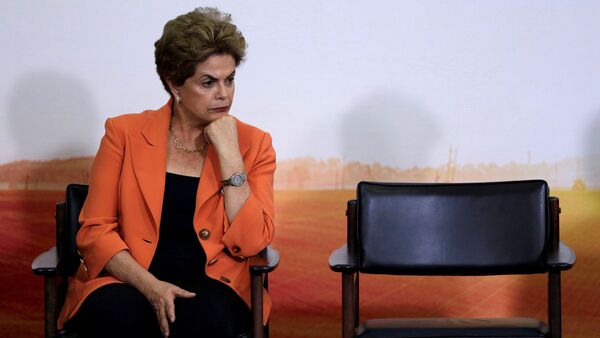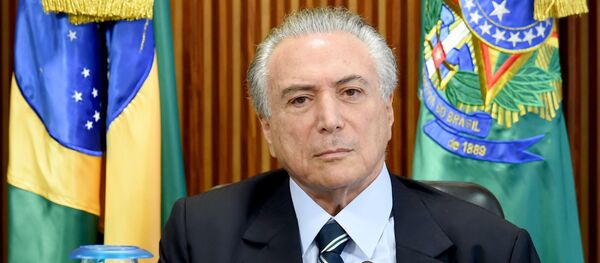"The fact that Brazil’s interim President Michel Temer was willing to cooperate with a foreign power underlines one of the main problems of our time," University of Louvain Professor Jean Bricmont and author of "Humanitarian Imperialism" said.
On May 12, WikiLeaks released two US diplomatic cables which contain Temer's detailed report on the prospects to defeat the Brazilian leader Lula da Silva in the 2006 presidential election.
The confirmation of Temer’s decade-long secret close ties with successive US governments revealed the confidence that the established forces of privilege in Latin American nations felt in the continued support of the United States against mass democratic movements, Bricmont explained.
"The ruling classes do never give up even in the face of repeated electoral victories of the Left. They always rely on the ‘friendship’ with the superpower, the United States, which is of course more than willing to interfere in the internal affairs of other countries," Bricmont pointed out.
Such a relationship had prevented Latin American nations for more than a century from achieving any real political, economic and social independence from the United States, Bricmont observed.
"That is why the ‘social’ question is inseparable from the ‘national’ one. As long as countries of the South are not independent, politically, but also culturally and mentally of the ‘Big Brother’ of the North, no real and lasting social change will be possible," Bricmont insisted.
California State University Emeritus Professor of Political Science Beau Grosscup agreed that Temer’s power grab in Brazil was supported by the US military and intelligence agencies.
"This comes as no surprise as Conservative/rightwing Latin American politicians — many who are former military intelligence personnel — have a longstanding cozy partnership with the US National Security State, especially its key institutions of the CIA [Central Intelligence Agency] and Pentagon," Grosscup stated.
Temer would actively work to undo the reforms and reverse the progress Brazil had achieved under previous Presidents Luiz Lula da Salvo and Dilma Rousseff, Grosscup predicted.
Temer’s program included the privatization of public assets, government 'reform' — meaning cutbacks of social programs — and the welcoming of foreign corporation direct investment, Grosscup stated.
The toppling of President Rousseff "constituted a major victory in the US campaign to roll back the progressive anti-US imperialist movement in Latin America," he maintained.
The entrenched power of the old elites across the region meant indicated that a crisis of rising confrontation and violence would take place, Bricmont warned.




